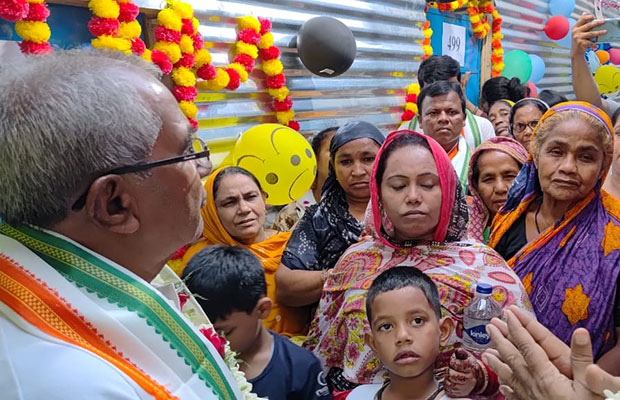
Safe Homes for a Community in India
At first glance, there appears to be litter strewn along the banks of a major drainage canal in Kapali Bagan, which is located in the Tangra region of Kolkata, India. Long, tattered pieces of plastic hanging on poles, and piles of colorful junk are scattered amid the chaos of children running around in a frenzy.
Yet, these sheets of plastic precariously balanced on bamboo sticks aren’t litter at all. They are tents — homes to destitute children and families. And the piles of junk are treasures, of sorts. They are recycled materials that the kids discovered at a nearby dump where they scavenged for potential income to help their families. Unfortunately, the tent homes aren’t safe, stable or sanitary, and the living conditions are deplorable.
Here is where the Don Bosco Development Society (DBDOC) comes in. They are on a mission to save impoverished families in this area. For six years, they have been working to increase the quality of life for the poorest of the poor living in Kapali Bagan. Recently, they celebrated the completion of 40 newly-constructed homes, bringing the total number built by the organization to 500!
Each of these sturdy structures consists of solid walls, a secure roof and a door that locks, providing families with the safety and stability that they had previously lacked.
“Living in a real home, one that provides protection from outside forces will help these children feel safe, so when they go to school, they are ready to learn and thrive,” explains Father Michael Conway, Director of Salesian Missions. “They will no longer have to worry about what is happening to their tent, or to their unprotected meager belongings, but instead they can focus on their schoolwork.”
Thanks to the generosity of caring friends like you who support the work we do, our Salesian missionaries in the DBDOC and around the world can provide safe housing for more impoverished families.
Learn more about our work in India.
Our mission is to provide safe shelter to suffering children and families living in deplorable conditions. What’s your mission?

